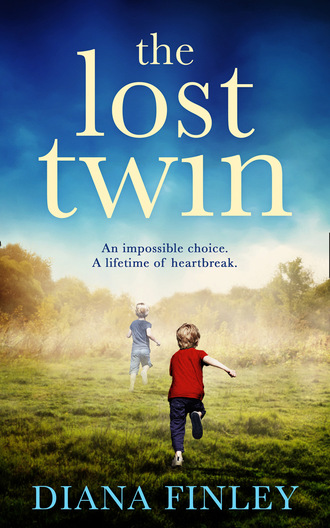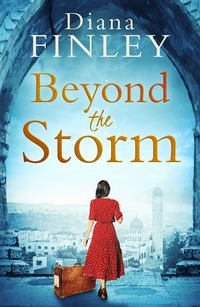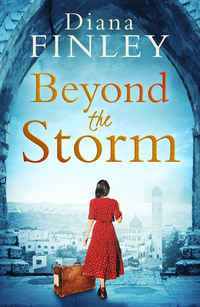
Полная версия
The Lost Twin
‘Ah, Sylvia! She’s the special friend you were with when you rang me, isn’t she? She sounds so nice. Why don’t you invite her round for lunch one of these days? Or even to stay for a night or two if you like?’
A few weeks later, on a Saturday, Sylvia comes for a day and we have a lovely time, walking around Blackheath, with Barry in his pushchair, exploring all there is of interest. We walk to Greenwich Park, so Barry can have a run about, chasing the birds and squirrels. While he’s happy and absorbed, Sylvia and I have time to talk. She and Elsie are the only people in London, apart from at St Agatha’s, who know about Donal, how his loss tortures me.
‘You look well, Marie,’ she says.
‘I am well … and happier than I’ve been in a long time, thanks to you mostly, Sylvia. If it weren’t for you I wouldn’t be here. My life is transformed, because of you.’
Sylvia looks straight into my face. ‘Oh really, don’t be so silly. I’m just glad all’s going well for you.’
‘As well as it could possibly be without Donal.’
She nods her head and reaches out to hug me. ‘I know, love, I know. Come on, Marie – let’s have a go on that roundabout! Give me a spin!’
She picks Barry up and swings him in the air. We race to the little playground nearby. It’s the happiest time Barry – or I – have had for a long time. We stay in the park all afternoon.
Then we head back to the house and all have tea together. I can tell Erna Goldstein enjoys Sylvia’s company too. After that visit Sylvia comes to stay for a weekend every two or three months. Mrs Goldstein is always very welcoming.
Sylvia and I love to walk on the heath together. Barry loves it too. He seems mesmerised by the sky, leaning his head back and gazing upwards.
I understand why he is drawn to the sky. In the peace of Blackheath, in its open spaces and vast skies, my heart gradually settles. It has become my home, although I still miss my family back in Ireland.
‘It’s good to see you like this, Marie,’ Sylvia says.
‘I love to walk on the heath,’ I tell her. ‘That’s what local people call it, anyway. It’s not what I understand a heath to be, not at all like in my homeland. After all, there’s no heather, no bracken, no shrubby golden gorse bushes. Just this great wide, manicured stretch of grass, an endless grassy meadow – with neither sheep nor cows to graze it!’
Sylvia laughs. ‘Yes, and with roads and cars criss-crossing it.’
We stand and stare up at the sky, rising huge and dominant, sometimes steely grey and forbidding, but more often a great swathe of blue, and gentle. I get Sylvia to stand with me in the middle of the grass and we stretch our arms out to the sides and up to the heavens above. Then little Barry watches us with a cross face on him. He frowns at me, as if he thinks I’m a crazy woman – which perhaps I am!
‘You know, Sylvia, sometimes I’m almost happy,’ I tell her. ‘There’s just the one area of my life causing me pain and anxiety, and I can’t stop it. That feeling of loss eats away at my soul every day and every night – and the sadness never seems to lessen. If anything, it consumes me more and more as our separation wears on. Sure, I chide myself for not being satisfied with my perfect, adorable Barry. Just look at him! Isn’t it a disgrace – a sin even – not to be grateful for the life I now have, and especially with my fine, lovely little boy?’
‘It’s not a sin to mourn your missing child, Marie, your Donal. Your love for Barry can’t wipe out your love and longing for Donal.’
She squeezes my arm.
‘There’s another shadow hanging over me …’
‘What’s that?’
‘It’s hard to put my finger on it, Sylvia, but I feel a concern about Barry. Oh, he’s beautiful, healthy and thriving, yet, yet … I wonder if there isn’t something not quite right with the child. As a baby, you know, he was forever looking around for no apparent reason, kind of looking over his shoulder, as if he expected to see someone there. Often his little face would suddenly crumple and he would cry inexplicably.’
Barry ran round us laughing and whooping.
‘Well, he looks lively and happy enough just now,’ Sylvia says with a smile.
‘Yes, anyone who saw him now would say that. But, as he’s grown into a toddler, he has a peculiar little game that he often plays by himself, holding out one of his toys, as if to some imaginary child, and then snatching it back, saying something like “No not you!” or “You not having it!”, with a glowering look of fury on his little face. It really worries me, Sylvia.’
‘Mmm?’
‘Well, at first I thought it amusing and quaint, but as time goes on he often repeats the game, and it just seems a bit odd. It’s as if there’s a terrible anger in the boy, which neither I, nor even Barry himself, can understand. Sometimes Barry’s anger expresses itself against me, his own mother, Sylvia. It happens particularly when we have quiet times together, Barry and I. I suppose it’s when thoughts of the dreadful empty gap in my life surface and preoccupy me. I really do try hard to control them, for fear of upsetting Barry, but I can’t always hold those thoughts at bay.’
I can’t stop the tears starting. When Sylvia hugs me, a deep sadness, a desperate longing, winds itself around my heart like a snake, squeezing it so painfully that my tears start to flow. Then Barry frowns and narrows his eyes and watches me closely. Of course, I reach for him and try to draw him into an embrace to reassure him, but his small body just stiffens and resists me with amazing strength.
‘On two occasions,’ I tell Sylvia, ‘his hard little fists pummelled me and he shouted, “No! Shadow boy there!” Whatever could the child be thinking? Such an odd little boy.’
‘He’s a lovely boy, but he’s very sensitive, Marie. Maybe you shouldn’t make too much of these behaviours. He notices if you’re upset or preoccupied.’
I know Sylvia is right. So I decide I’m right never to mention to Barry that he has a brother, a twin. It would only upset him further. He isn’t ready for this information. He wouldn’t understand the terrible choices I had to make, that in the end I made the only choice I could. Surely it was the right choice?
Maybe I’ll never tell him. Or perhaps when he’s older, much older … perhaps then I can explain.
Chapter 4
1972
Robert
‘These things take time, Mrs Carlton,’ the social worker assures Clarissa soothingly. ‘You may need to be patient. None of us know just how traumatic early separation from the birth mother can be. And remember, your Robert had a twin brother. They had nine months in the womb together. Being parted from such a close sibling can affect a child in all sorts of ways, even one so young. Also, you have to understand that some children take a long time, perhaps even years, to settle, to feel fully secure, to attach themselves to a new parent.’
Clarissa glances at her husband, who sits at a slight distance, watching Robert in the play area. She is not prepared to be fobbed off by such platitudes, not this time. The child had been less than two months old when they’d adopted him, for heaven’s sake! It’s now two years later. She and Simon aren’t ‘new parents’. Surely Robert had barely had time to attach himself to his birth mother? He probably hadn’t even noticed a change in mothers, let alone been traumatised by it! Nor is she impressed with Miss Phillips’ half-baked theories on the emotional effect of sharing a womb with his brother – such twaddle! Does she think they were happily playing ‘uterus hide-and-seek’ in there?!
It isn’t as though she and Simon haven’t tried – tried time and time again. Have they not committed themselves totally to the welfare of their adopted son? All right, maybe she isn’t the most lovey-dovey sort of mother … a brief hug and kiss at bedtime, or a little cuddle when drying him after his bath; that’s how Clarissa shows her affection, and that is surely enough. Have they not devoted over two years to the child’s every need? She has no intention of allowing this young woman, a mere slip of a thing, with her fake smile and condescending expression, to patronise her. Absolutely not.
‘Do you have children, Miss Phillips?’ Clarissa asks through gritted teeth.
‘Er … no. Not yet …’ The young woman smiles a little nervously. ‘But actually, I’m getting married in the new year, and we hope to start a family soon after that.’
‘I’m sure you do … as we did ourselves. But in our case it wasn’t to be. So we had no alternative but to choose adoption. We really did expect to love and care for a baby in need of just that – love and care. We had hoped to adopt another child too in time, perhaps a little girl. To make a real family one day.’
Miss Phillips nods her head vigorously, as if this is exactly what’s to be expected, to be encouraged.
Clarissa regards her icily. Does this woman – this girl – think she needs her approval, that it means anything at all to her?
‘However,’ she continues, ‘we haven’t started a family with this child,’ she says. ‘It’s almost as though we have started a siege, a battle! Every morning we pray that this day will be different, but it never is. In fact, it seems to get worse day by day. Sometimes it feels as if he’s in mourning. Although of course that’s ridiculous. Yet … I don’t know … perhaps he is. Maybe unconsciously he still misses his “birth mother”, though I can’t imagine why. What did she ever do for him?’
A muscle beside Clarissa’s mouth begins to quiver. She struggles to control her voice. Simon is watching her steadily.
‘Sometimes it’s almost as if he hates us. Most days he cries and whimpers from morning ’til night. If I try to cuddle him, he arches his back, shrieks and struggles until I put him down. All he wants to do is play – not with us, you understand. No, on his own and in his own way – with toys, bricks or trains or some other objects on the floor. If Simon or I try to play with him, he turns his back or pushes us away. It’s so very disheartening, so very dispiriting. Do you understand?’ Her voice seems to break and fade away.
Miss Phillips nods.
‘Yes, I do,’ she whispers.
Clarissa appears not to notice. She carries on as if she has not heard.
‘His play seems repetitive and without purpose; just making lines of toys, or sorting them into odd groups,’ she continues. ‘If I try to intervene, to actually play with him, he screams, or even pushes my hand away. If he doesn’t get his own way he has the most almighty tantrums, which really frighten me. I don’t know if he’s unhappy, or if there’s something wrong with him? Could he be … damaged, do you think? Or perhaps he’s autistic?’
‘Well, no. I don’t think so. He was fully assessed just before you received him, and again six months after,’ Miss Phillips replies, consulting her notes. ‘His development was found to be normal, if not advanced,’ she says with emphasis, gazing at the Carltons with wide blue eyes, as if they must surely see that advanced development in a child is something to be welcomed, something to be celebrated.
‘Well, we’ve tried and tried for over two years now, but I’m sorry to say we both feel we’ve reached the end of the road as far as this little boy is concerned.’ Clarissa Carlton’s voice is weary.
Miss Phillips looks aghast. ‘You mean, you mean … you want us to take him back?’
Simon Carlton stands up abruptly and speaks for the first time. ‘We do not want you to “take him back”, as you put it, Miss Phillips. He is not an electric kettle to be returned to the manufacturer when found to be faulty! We wanted him to be our son. We gave him a new first name, Robert, and our family name because we believed he would be part of our family. We still want a child desperately – a baby to bring up in our home, as our own. We don’t expect a perfect child – we know there’s no such thing as a perfect child. However, there’s nothing more we can do. We feel this child is not happy with us.’
He pauses, looking desperately sad. ‘And I’m afraid we are certainly not happy with him.’
Mr Carlton draws in a deep breath and sighs it out again. For a moment he looks as though he might break down in tears, but he clasps his arms around his body and shakes himself slightly, as if to gather his emotions in deeper, to push them out of sight.
‘A different home, different parents, may be much more successful than we have been. We really do hope so. He is clearly a needy child; needy in some way we appear unable to fulfil. Of course, we care about him. We wish him a happy life – but it seems it is not to be with us.’
Clarissa Carlton watches her husband with admiration.
Simon is now gazing at the little boy, who is absorbed in some activity arranging bricks on the floor in the ‘play corner’ of the room. He remembers how at first he had approved of the orderliness of the child. Hadn’t he been a bit like that himself as a small boy? But no, he’d been deeply attached to his mama. He loved the few occasions his mama and papa chose to play with him.
He turns back to Miss Phillips. ‘Please set in motion whatever procedures are necessary in this situation,’ he says briskly, ‘and let us know when to sign the paperwork.’
He strides towards his wife and helps her up from the sofa. She is sobbing quietly. Putting his arm around her, he leads her towards the door. He pauses briefly to pat Robert on the head. Clarissa looks down at the child. Without a further word they open the door and leave.
The small boy glances up momentarily from his game on the floor and then looks down again. The departure of his adoptive parents seems to have little effect on him. Miss Phillips gazes at him and shakes her head.
‘Oh, you poor little beggar,’ she says under her breath, ‘what’s going to happen to you now?’
***
That same evening, Miss Phillips drives Robert Carlton to an orphanage on the edge of the town. All he brings with him from his adoptive parents is a carrier bag of clothes and toys, and the name they had given him.
Robert is placed in a dormitory in the Pre-school Unit along with eight or so other ‘difficult to place’ infants. The programme is highly regimented, the theory being that young children respond to predictable punishment or reward – training in other words – rather like dogs. They need routine, firm handling, and to know exactly what is expected of them. The staff enforce the rules rigorously, and sometimes harshly, although not all are without care and kindness.
It is noticed that Robert is an attractive child, and carers in the orphanage feel he would be likely to be accepted by foster parents. Immediate efforts are made to identify a suitable foster family with whom Robert can be matched. It is felt that, ideally, Robert should be placed with a family where he is the only child, or the youngest child.
After a few weeks in the children’s home, during which Robert does not really settle, a placement is arranged with the Collins family, consisting of mother Brenda, a part-time nurse, father George, a builder, and their daughter Lacie aged six. They had previously fostered two small sisters aged five and one. After a largely happy and settled year, the little girls moved on to a permanent home with adoptive parents. George and Brenda are confident that their new two-year-old foster child will be just as successfully integrated into their family.
For the first week of his stay with the Collins family, Robert screams almost continuously. He strains furiously at the harness of his highchair at mealtimes, shaking and rocking so violently his foster carers are afraid he will topple over. One of them has to hold firmly on to the chair at all times. When food is placed in front of him, Robert sniffs it and then flings the dish onto the floor.
‘Poor little love,’ says Brenda, ‘he must have been that disturbed by being rejected by his adoptive mum and dad, no wonder he’s upset.’
She tries to tempt him with a range of foods, and decides maybe he’s missed out on some vital early baby experiences, and needs to revert for a while. She places him facing outwards on her lap, crooning softly to him, while George tries to insert a plastic spoon loaded with sweetened milky semolina into his mouth. Robert squirms violently, shrieking, arching his back and screwing up his face in fury, while George patiently pursues his open mouth, awaiting the chance to empty the spoon inside it. At last the spoon deposits its contents on Robert’s tongue. His eyes open in surprise and rage. He takes a deep breath and blows the entire mouthful of semolina straight into George’s face.
The semolina is abandoned and Brenda prepares a modest but varied feast of small pieces each of rusk, banana, cheese, apple, chocolate, and bread and butter. Her theory is that Robert needs to be reassured by giving him choice. She places a spread of these foods on the tray of the highchair.
‘There you are, Bobby love, you just see what takes your fancy.’
Robert eyes the scattering with a suspicious frown. He fingers them and sniffs them. Brenda nods knowingly. ‘Exploring,’ she mouths to George.
Robert pops the piece of chocolate into his mouth and sweeps the rest of the food onto the floor.
That evening, Robert allows George and Brenda to feed him the remainder of the bar of chocolate piece by piece, despite Lacie’s outraged objections.
‘You said too much chocolate’s bad for me. I thought you said it would make me sick? You never let me have more than two little squares. How come he’s allowed to eat a whole bar? It’s not fair!’
‘It’s just to try and get him to settle, love. He’s a sad little boy. He’ll not always need chocolate, you wait and see.’
For the next few weeks, Robert survives on almost nothing but chocolate. The Collins family have to endure his frequent screaming and his hitting, biting or spitting at anyone within reach, his destruction of toys and tearing up of books. By the end of just over a month, they reluctantly admit defeat, and return him to the children’s home. Brenda and George decide to have a break from fostering.
***
Throughout the coming years in the care of the local authority, several further attempts are made to place Robert with foster parents, but none of these placements last for long. Each time, the foster carers report a range of worrying behaviours: persistent bed-wetting, destructive behaviour, stealing, tearing clothes and books, flinging toys and other objects, aggression towards other children and adults, swearing, stealing, spitting, soiling, screaming … the list goes on and on.
In time, Robert progresses from the Pre-school Unit to the Primary Wing. The staff and other children in the home address him variously as Robert, Robbie, Bobby, Bob or Rob. He comes to expect this variability of his name. It appears to him to reinforce an absence of clear identity, a failure – of himself and others – to know exactly who he is. He isn’t sure whether it matters.
Chapter 5
1972
Marie
Local people refer to Blackheath as ‘the village’. But it’s hardly what I think of as a village. To me, a village is a little cluster of houses, with a church of course, and perhaps a small shop, and with luck, a pub – in the middle of the countryside – such as I remember from back home, and often think about and still miss terribly.
There’s certainly no rural feel to this ‘village’, what with its cafés and shops of every description, most of them noisy, crowded and expensive. And always the restless press of traffic. There’s any number of pubs and bars and restaurants in the village. In the evenings they heave with young people, who spill out onto the pavements, smoking, drinking, and talking with the loud, confident voices of the well-off.
Although I suppose I myself am also still young – considerably younger than many of these merrymakers no doubt – I feel no part of their groups. I feel no connection. It’s my friends back home I miss the most – the girls with whom I chatted in the school playground at break times. We talked about periods, about which boys we fancied, about the records and clothes we loved but could never afford, and about sex, when we could finish a sentence without collapsing into nervous giggles. We discussed what life might be like for us when we left school. My special friends – Deidre and Gwen – and I would try to envisage life as adults, as women. No way did we want our mothers’ lives – but then, what else was there for us? It was unimaginable. The thought that I might end up here, in London, in a grand house, with a little son … and without another … never occurred to me.
What with motherhood and responsibility, with the sadness of leaving my home and family – and the memory of the trauma that never leaves me – I think I have aged before my time. I’m barely in my twenties, yet I feel I’ve become a mature woman, almost middle-aged. Today we’ve been for a gentle walk, Erna and I, with Barry toddling or in his pushchair. It’s too soon for lunch when we get back. Erna squeezes my arm as I shut the front door.
‘Come and join me for a cup of coffee, Marie. I enjoy your company. Let’s have a chat. I’d love to hear more about your life in Ireland.’
So I bring in the tray and we sit amicably together, while Barry plays with his little heap of toys in the corner of the sitting room, chattering to himself.
‘So tell me, my dear … I’d love to hear more about your life in Ireland and your family.’
I begin with the easier part: my home and family. I close my eyes and think back to our little farmhouse – set in a small valley, with meadows and streams low down, and heather and bracken on the hills all around. It was a mile or so to the village, but with all my brothers and sisters, and Ma and Da of course, it never seemed remote to me, just homely.
‘Well, I guess you might think our house was picturesque, um … Erna, for all we were poor and me da had to scratch a living from the earth. That was how he always put it – “scratch a living”.’
Erna nods her head and smiles encouragingly.
‘I was one of seven children in the family. I was a “middle child”, and the oldest daughter, you see. There were two lads older than me, and four younger sisters.’
‘Oh you were quite a tribe then,’ she says.
‘Yes, you could say that. Da always hoped for another son, but each time Ma gave birth it was another girl. He never reproached her, mind. We were a close family. Although he was a gruff man, not one for soft talk, he loved Ma. He loved all of us, even us girls. That is, until I disgraced myself, becoming pregnant – and me not married, nor even engaged.’
Erna tuts and shakes her head. ‘No, no, Marie. You mustn’t say that. You’re judging yourself far too harshly.’
I decide to be quite open with Erna about what had happened. It’s the first time I’ve told anyone the whole story. Well, apart from Sylvia, but this feels different, Erna Goldstein being my employer and all. Once I start I can’t stop. I tell her everything; I don’t hold anything back.
‘Well you see, Erna … a travelling fair came to the village near my home – that was such a rare and exciting event in our little quiet backwater, you can’t imagine. It filled all of us young people with huge excitement. I went with my friend Deidre. We were both just seventeen and innocent. The fair was such a great thrill.’
‘Oh, I can imagine – it must have been!’
‘Well, we couldn’t afford more than a couple of rides. We just loved wandering arm in arm around all the stalls and rides. We were so excited by the atmosphere, the smell of the candy floss, so sweet and fragrant. We swayed and jigged to the blaring loud pop music; we heard it so rarely. The men working the rides give us winks and grins. We couldn’t stop giggling at them!’
Erna smiles and nods.
‘We got talking to a couple of the young fairground workers. I was completely bowled over when one of the men – he said his name was Billy – offered me a free ride on the waltzer. Billy was definitely the handsomer of the two. He came to whizz my car round lots of times, and he laughed when I screamed and said I’d be sick …’





